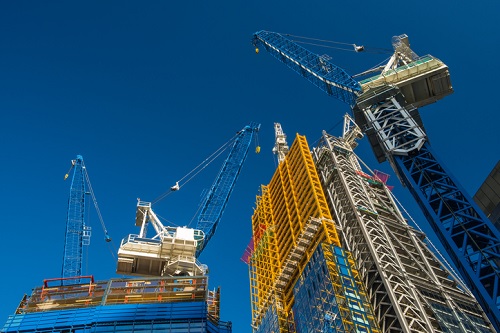Building better – understanding the risks of modern methods of construction

Authored by Allianz
Modern methods of construction (MMC) became mainstream back in the 1950s, when off-site, pre-fabricated manufacturing addressed shortages in housing, building materials and skilled labour following the Second World War. Today, the drive for sustainability is putting the spotlight back on MMC, and the benefits its offers means it’s becoming much more common again – with the insurance sector keen to support the growth of this type of construction.
MMC benefits
Using MMC can increase the speed and efficiency of construction projects. It can lead to a 20% – 60% reduction in construction time, due to the benefits of working indoors, avoiding any weather disruptions.
As so much is pre-fabricated in a factory off-site, quality control can be managed more effectively than on a construction site. This shift in production also reduces the health and safety risks and enables greater flexibility around labour.
MMC also delivers on the sustainability front. One firm reported that their homes have less than 5% of the embodied carbon of a traditional home . Using more timber produces less waste and captures carbon, and will have a positive impact on the amount of waste produced by the construction industry, which is currently accountable for up to 62% of waste in England.
Government objectives
These benefits mean MMC ties in well with the government’s targets on housebuilding and there are three key milestones in particular that are relevant to its use:
To build 300,000 homes a year by the mid-2020s To achieve net zero by 2050 ; andTo achieve zero avoidable waste by 2050
As a result, the government expects a significant proportion of this housing will be built using MMCs.
Insurance Support
Given the benefits associated with MMC – and the part it has to play in helping the government achieve its housing targets – the insurance industry is keen to support its use in the construction sector.
To be able to provide affordable insurance it’s essential to understand the risks. However, unlike traditional methods of construction where there are hundreds of years of data, the relatively new emergence of MMC means there’s still a lack of information about the materials and techniques used, or on the long-term performance of buildings constructed using these techniques and materials. This is why it is important to engage with brokers and insurers early to avoid any uncertainty.
Changing risk landscape
The introduction of MMC changes the risk landscape, both during the design and build phase and once the property is occupied.
The use of more pre-fabrication has a number of benefits from a risk perspective, especially during the design and build phases. As more work is undertaken in a factory rather than on the construction site, this has the potential to reduce the number of accidents onsite.
This shift indoors also reduces the risk of bad weather conditions interrupting project delivery. Similarly, as pre-fab designs are repeated and perfected over time, there may be fewer claims resulting from negligent design work.
There are, however, also areas where there are potentially more risks. In comparison with traditional builds, modern timber construction, as well as SIPS (structural insulated panels), may lead to an increased risk of total loss in the event of a fire. As well as this, the faster spread of fire makes evacuation procedures more difficult, potentially leading to a greater threat to life.
Incorrect installation is another potential risk. Where components aren’t correctly installed, it can result in increased risk of damp and water ingress. Hidden voids can also increase the ability for smoke, toxic gases and water to permeate through a building.
The benefits of MMC means it has a key role to play in meeting future construction demands. Starting conversations with insurers early is crucial to ensuring the risks are fully understood.
To explore Allianz’s Business Risk Support Site CLICK HERE





